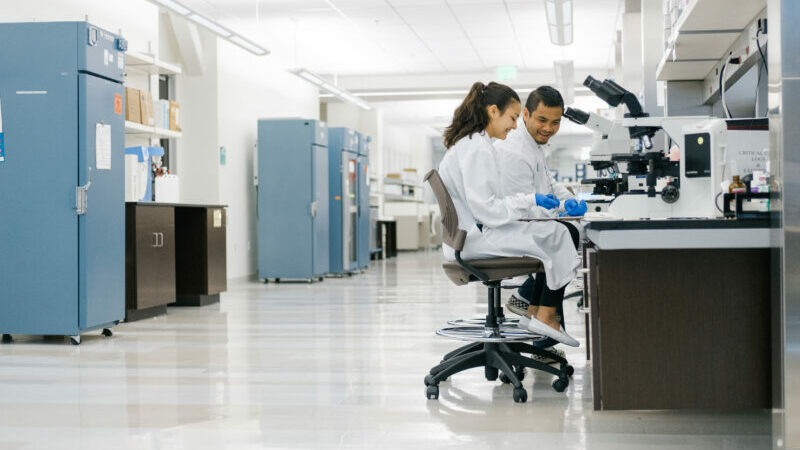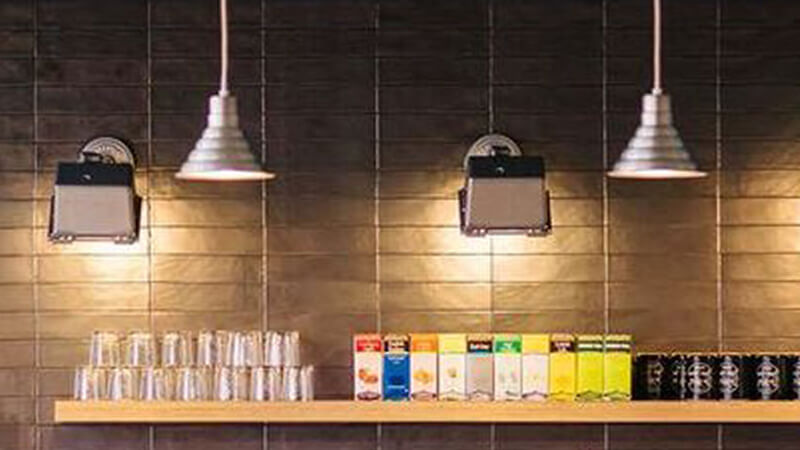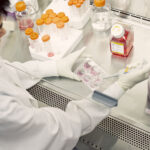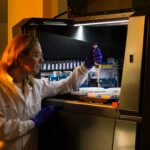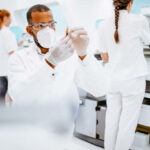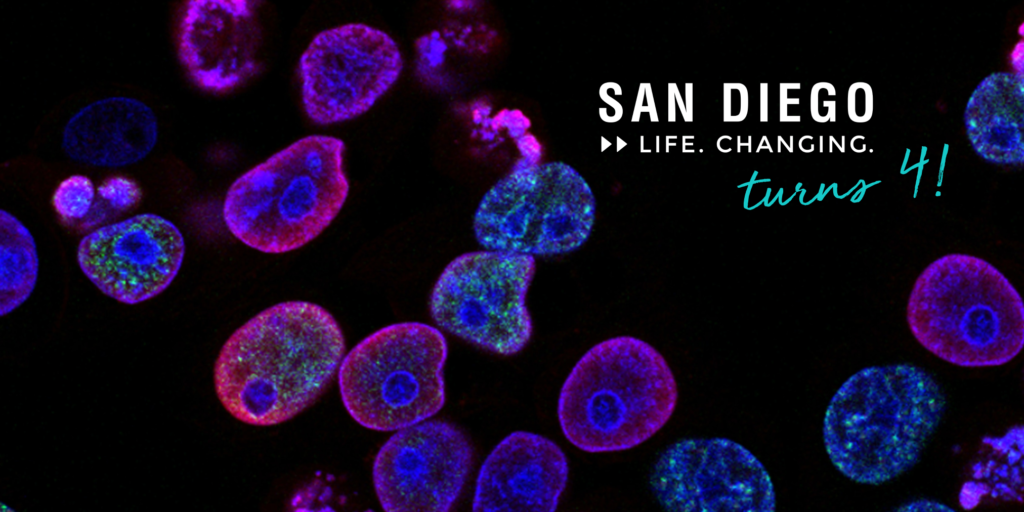
San Diego’s 4 biggest science moments in 4 years
Sep 15, 2021 - Candela Delucchi
As we continue our week-long celebration of San Diego: Life. Changing., we’re reflecting on some of San Diego’s best life sciences and biotechnology breakthroughs of the last four years.
San Diego is the #3 life sciences cluster in the nation, nudged out only by Boston and the Bay Area. With homegrown talent and a shared mission to change the world, the San Diego region is home to more than 1,000 companies, 80 research institutions, 30 hospitals, and five universities making big strides in genomics, biopharma, medical device manufacturing, cancer, Alzheimer’s research, and, most recently, the fight against COVID-19. And recently, this innovation has taken off in a big way.
As we celebrate our fourth year, check out four of San Diego’s most impactful science moments since we launched in 2017.
1. Sanford Burnham Prebys Medical Discovery Institute made a big breakthrough in the origins of Alzheimer’s
In 2018, Sanford Burnham Prebys Medical Discovery Institute identified never-before-seen DNA recombinations in the brain linked to Alzheimer’s disease.
The study provided never-before-seen evidence on how brain deteriorating illness originates and is helping researchers explore how current medicine could be repurposed to treat the disease. With this new information, researchers are well on their way to find how to stop this genetic reshuffling to occur, stopping the disease before it begins to develop.
Learn more about Sanford Burnham Prebys’ Alzheimer’s study.
2. San Diego led the charge against cancer
It’s a not-so-secret secret around town: The cure for cancer may likely come from San Diego. Ever since Hybritech, San Diego’s first biotech company, developed the first antibody test for prostate cancer, much of our region’s life sciences research and development has focused on developing cancer prevention therapies and cures.
And we’ve had some significant San Diego-powered breakthroughs in cancer research recently, including:
- In 2018, DermTech debuted a sticker test for high-risk DNA mutations that occur in skin cancer. The new method provides a less invasive and painful way to test concerning spots for cancer diagnosis.
- GRAIL, originally an Illumina spin-off, developed a blood test that enables early detection of 50 cancers before they are symptomatic. GRAIL’s test, dubbed Galleri, costs $950 and is not covered by insurance. Illumina’s recent acquisition will help the company make it more widely available and affordable.
- This year, San Diego’s Erasca announced the expansion of its pipeline of precision oncology therapies via two exclusive, worldwide agreements directed at targeting critical upstream and downstream nodes in the RAS/MAPK signaling cascade, one of the most frequently mutated oncogenic pathways in cancer.
3. Rady Children’s Institute for Genomic Medicine & Illumina delivered rare pediatric diagnosis in record time
Rady Children’s Institute for Genomic Medicine has always led the way in advancing precision healthcare for infants and children through genomic and systems medicine research. And in 2020, its Rapid Precision Medicine program may have saved a San Diego infant’s life in record time.
When faced with a young patient with seizures, the Rady team leveraged whole genome sequencing and Illumina technology to deliver a diagnosis for a rare genetic disease in a record 13.5 hours. Within two days, the infant received vitamins that resolved the seizures, potentially saving his life.
An emerging center of excellence for rapid whole genome sequencing, Rady performs sequencing for 60 other U.S. and Canadian pediatric hospitals – saving countless lives across North America.
Rady has long leveraged rapid whole genome sequencing to save lives, including six-day-old Maverick. Learn how.
4. COVID-19 spurred collaborative life sciences innovation with global impact
At the onset of the COVID-19 pandemic, San Diego’s local biotechnology and research communities rose to address the global challenge. Local companies and research institutes chose not to compete but instead came together to collaborate on rapid testing solutions, new treatments, and other scientific efforts aimed at bringing a vaccine and drug treatments to the global market.
Here are just a few of the COVID-19 breakthroughs with a San Diego stamp on them:
- Pfizer developed a widely-used COVID-19 vaccine with 95 percent efficacy rate, gaining FDA Emergency Use Authorization in November 2020 and full FDA approval in August 2021.
- FDA approved the first COVID-19 drug from Oceanside’s Gilead Sciences in October 2020.
- Carlsbad’s Thermo Fisher Scientific shipped the first COVID-19 tests in March 2020 and was recently granted emergency use authorization by the FDA for two COVID-19 assays designed to compensate for mutations and emerging COVID-19 variants.
- BD won FDA approval of its 15-minute, hand-held COVID-19 test, and recently, won approval of its smartphone enabled at-home COVID-19 test, which uses computer vision technology to read and interpret test results.
- Sanford Burnham Prebys Medical Discovery Institute won a $10M grant to screen thousands of existing, approved drugs in the hopes that some could be quickly repurposed to treat COVID-19. Dr. Sumit Chanda, who leads the effort, has discovered thirty drugs that show promise.
- Vista’s Cue Health won $481M to expand COVID-19 test manufacturing and enabled a safe, successful NBA season.
- FDA granted Quidel emergency-use authorization for the first COVID-19 antigen test and for its over-the-counter, at-home test.
- Inovio received $71M for its COVID-19 vaccine device and is in Phase III of its clinical trials.
- Scientist.com launched its COVID-19 Collaboration Center, connecting thousands of professionals from the life sciences industry across the globe to consolidate COVID-19 research and empower researchers.
So what’s next for San Diego science’s big breakthroughs? We can’t say for sure…but whether it’s leveraging AI for life sciences innovation or ramping up the public-private fight against cancer, it’s sure to be life-changing.
